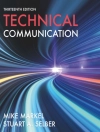Since its emergence in the 1990s, the field of Urban Political Ecology (UPE) has focused on unsettling traditional understandings of the ‘city’ as entirely distinct from nature, showing instead how cities are metabolically linked with ecological processes and the flow of resources. More recently, a new generation of scholars has turned the focus towards the climate emergency. Turning up the heat seeks to turn UPE’s critical energies towards a politically engaged debate over the role of extensive urbanisation in addressing socio-environmental equality in the context of climate change.
The collection brings together theoretical discussions and rigorous empirical analysis by key scholars spanning three generations, engaging UPE in current debates about urbanisation and climate change. Engaging with cutting edge approaches including feminist political ecology, circular economies, and the Anthropocene, case studies in the book range from Singapore and Amsterdam to Nairobi and Vancouver. Contributors make the case for a UPE better informed by situated knowledges: an embodied UPE that pays equal attention to the role of postcolonial processes and more-than-human ontologies of capital accumulation within the context of the climate emergency. Acknowledging UPE’s rich intellectual history and aiming to enrich rather than split the field, Turning up the heat reveals how UPE is ideally positioned to address contemporary environmental issues in theory and practice.
Table des matières
Prologue: Losing California – The political ecology of the megafires – Mike Davis
Introduction – Urban political ecology for a climate emergency – Yannis Tzaninis, Tait Mandler, Maria Kaika, and Roger Keil
Part I: Extended urbanisation: Moving UPE beyond the ‘urbanisation of nature’ thesis
1 Capital’s natures: A critique of (urban) political ecology – Erik Swyngedouw
2 Urban political ecology versus ecological urbanism – Matthew Gandy
3 Towards the urban-natural: Notes on urban utopias from the decolonial turn – Roberto Luís Monte-Mór and Ester Limonad
4 Circuits of extraction and the metabolism of urbanisation – Martín Arboleda
5 Hinterlands of the Capitalocene – Neil Brenner and Nikos Katsikis
Part II: Situated urban political ecologies
6 The case for reparations, urban political ecology, and the Black right to urban life – Nik Heynen and Nikki Luke
7 Urban climate change and feminist political ecology – Andrea J. Nightingale
8 Nairobi’s bad natures – Wangui Kimari
9 Situating suburban ecologies in the Global South: Notes from India’s urban periphery – Shubhra Gururani
10 Infrastructure beyond the modern ideal: Thinking through heterogeneity, serendipity, and autonomy in African cities – Mary Lawhon, Anesu Makina, and Gloria Nsangi Nakyagaba
Part III: More-than-human urban political ecologies and relational geographies
11 Extending the boundaries of ‘urban society’: The urban political ecologies and pathologies of Ebola virus disease in West Africa – Roger Keil, S. Harris Ali, and Stefan Treffers
12 In formation: Urban political ecology for a world of flows – Kian Goh
13 Insurgent earth: Territorialist political ecology in/for the new climate regime – Camilla Perrone
Part IV: Addressing disjunctions between policy, politics, and academic debate
14 Populist political ecologies? Urban political ecology, authoritarian populism, and the suburbs – Alex Loftus and Joris Gort
15 Greenwashing and greywashing: New ideologies of nature in urban sustainability policy – David Wachsmuth and Hillary Angelo
16 The peasant way or the urban way? Why disidentification matters for emancipatory politics – Irina Velicu
17 Urbanising islands: A critical history of Singapore’s offshore islands – Creighton Connolly and Hamzah Muzaini
18 The circular economy of cities: The good, the bad, and the ugly – Federico Savini
Epilogue: Is an integrated UPE research and policy agenda possible? – Tait Mandler, Roger Keil, Yannis Tzaninis, and Maria Kaika
Index
A propos de l’auteur
Maria Kaika is Professor in Urban and Environmental Planning at the University of Amsterdam Roger Keil is Professor in the Faculty of Environmental and Urban Change, York University, Canada Tait Mandler is a postdoctoral researcher in the Knowledge, Technology, and Innovation group at Wageningen University Yannis Tzaninis is a researcher in the Faculty of Social and Behavioural Sciences at the University of Amsterdam












